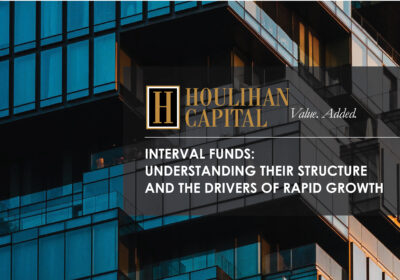As venture capital firms navigate prolonged exit timelines and increasing liquidity demands from limited partners (LPs), continuation vehicles (CVs) are emerging as a critical solution. Once a niche instrument in private equity, CVs are now gaining traction in venture capital, particularly amid reduced IPOs, tepid M&A activity, and growing pressure to demonstrate liquidity.
What Are Continuation Vehicles?
CVs are investment structures, typically new funds, established by a general partner (GP) to transfer one or more portfolio assets from an older fund nearing maturity. These vehicles offer existing LPs the option to cash out or roll over their interest, while bringing in new investors seeking exposure to high-quality, growth-stage assets.
As traditional exit pathways like IPOs and M&A remain constrained, CVs provide a flexible alternative to extend support to promising portfolio companies while offering partial liquidity to LPs. While common in private equity, the rise of CVs in venture capital represents a fundamental shift in fund lifecycle management.
According to the CFA Institute, global continuation fund volume reached approximately $63 billion in 2024, nearly tripling over five years, with an exit overhang of approximately 29,000 unsold portfolio companies (approximately $3.6 trillion) underscoring systemic liquidity needs.
Why are Venture Capital Firms Embracing Continuation Vehicles Now?
Exit Environment
The current exit environment remains constrained. IPO activity has slowed and the M&A market is tepid despite a modest rebound in deal activity. This has created a liquidity bottleneck for LPs, many of whom are seeking returns from legacy funds.
Prolonged Exit Timelines
Late-stage private companies in venture capital portfolios, such as AI infrastructure startups, fintech leaders, and synthetic biology innovators, often require longer time horizons to reach meaningful liquidity events. With IPOs delayed and strategic buyers remaining cautious, CVs offer a more flexible path forward, avoiding forced exits or premature fund closures.
LP Pressure for Liquidity
Aging venture capital funds are facing increased expectations from LPs for distributions. Rather than liquidating high-performing companies under unfavorable conditions, CVs allow GPs to offer partial liquidity while preserving long-term upside.
Retention of High-Upside Assets
CVs enable GPs to retain exposure to “category-defining” startups that may be years away from exit. Rather than exiting prematurely or letting the fund expire, the CV provides time, focus, and capital to see the thesis through.
Fairness Opinions: A Critical Governance Safeguard
CVs present a structural vulnerability when GP’s assume dual roles as both buyer and seller of assets. This arrangement inherently gives rise to significant conflicts of interest and calls into question the integrity of the transaction process. In this context, fairness opinions are not merely beneficial; they are essential to preserving fiduciary standards and protecting the interests of LPs. Issued by an independent third party, a fairness opinion provides an objective assessment of whether the transaction terms are financially fair to LPs. Absent this safeguard, there is a heightened risk that valuations may disproportionately favor GPs, potentially to the detriment of the investor base.
Independent Oversight: Why Fairness Opinions Are Essential
- Valuation Ambiguity: Late-stage venture assets are notoriously hard to value, especially those not yet cash-flow positive or with shifting growth projections.
- Asymmetric Information: GPs have far more insight into the future prospects of portfolio companies than LPs or new buyers.
- GP Conflicts: Without independent checks, GPs might underprice assets in the sale to benefit the new fund’s returns.
The importance of a fairness opinion is heightened because the underlying assets are often opaque, illiquid, and lack financial comparables.
In best practice, fairness opinions are paired with:
- Independent LP Advisory Committee (LPAC) review
- Full process transparency
- Opportunities for existing LPs to co-invest or roll over
Looking Ahead: Institutionalizing Continuation Vehicles in Venture Capital
As LPs grow more familiar with structured liquidity solutions, CVs will become an established fixture in venture capital. The model managers will be those firms that adopt best practices around governance, transparency, and fairness.
Emerging trends include:
- CVs of CVs (CV²): Already visible in private equity, this may come to venture capital as the time-to-liquidity stretches further.
- Multi-asset CVs: Combining several late-stage assets for diversification and scale.
- Secondary syndicates: LPs forming specialized groups to participate in CV rounds or buy out rolling LPs.
Why Houlihan Capital?
Houlihan Capital is uniquely positioned to advise on CV in venture capital. Our work on landmark transactions underscores our ability to:
- Deliver independent, conflict-free fairness opinions that preserve LP trust.
- Bring deep sector expertise across venture and private equity portfolios.
- Execute efficiently with credible documentation, building stakeholder confidence through our responsiveness, integrity, and clear communication.
As continuation vehicles continue to gain prominence, Houlihan Capital stands as a trusted partner in helping venture firms unlock liquidity while preserving long-term growth potential.
Case Study A – Single Asset CV
Houlihan Capital was engaged by a GP to advise on a CV involving one of the GP’s portfolio companies. The GP sought to provide liquidity to existing investors while retaining exposure to the portfolio company’s long-term growth. The transaction transferred an approximately 45% interest in the portfolio company to a newly formed vehicle at a purchase price representing a discount to NAV. LPs were offered the choice between liquidity and rollover, while the GP recommitted 100% of its proceeds. Houlihan Capital delivered a fairness opinion confirming the financial fairness of the transaction, ensuring transparency and alignment for all stakeholders.
Case Study B – Multi-Asset CV
Houlihan Capital advised a GP on a CV designed to provide liquidity for its Fund I LPs while extending ownership of three strong-performing portfolio companies. Fund I sold its equity stakes in the three companies for an aggregate purchase price representing a discount to NAV. Legacy LPs could either realize liquidity at closing or roll their interests into the CV to capture future upside. The GP rolled its carry into the CV, aligning its incentives with rolling LPs. Houlihan Capital was engaged to provide a fairness opinion, confirming the financial fairness of the consideration to the fund’s LPs. The opinion provided independent governance assurance around a complex, multi-asset liquidity solution.
For questions regarding our valuation services to continuation funds, including Fairness Opinions, please contact:

Nancy Shao, CFA
Senior Vice President
nshao@houlihancapital.com
______________
Primary sources used:
- Continuation vehicles are accelerating in the venture industry, dated July 1, 2025 (https://www.venturecapitaljournal.com/continuation-vehicles-are-accelerating-in-the-venture-industry)
- CV-squared: What are the risks of PE’s latest liquidity solution?, dated July 11, 2025 (https://pitchbook.com/news/articles/cv-squared-what-are-the-risks-of-pes-latest-liquidity-solution)
- Continuation funds find their footing in private credit, dated June 27, 2025 (https://pitchbook.com/news/articles/continuation-funds-find-their-footing-in-private-credit)
- Top Venture Capital Trends Startups Should Watch in 2025 (https://www.fidelityprivateshares.com/top-venture-capital-trends-startups-should-watch-report)
- State of Venture Q2’25 Report, dated July 10, 2025 (https://www.cbinsights.com/research/research/report/state-of-venture-q225-report/)
- The Financial Times: Private equity backers refuse to roll over investments as returns dwindle, dated July 26, 2025 (https://www.ft.com/content/02c4c5b2-f65a-4359-af6c-5e3d1d997617)
- CFA Institute: Continuation Funds: Ethics in Private Markets, Part I, dated September 2025



